Ethical standards are critical in the non-medical home care sector. In addition to needing help with everyday tasks, clients rely on caregivers to treat them with respect, dignity, and compassion. Ensuring that these ethical standards are regularly upheld requires strong policies. This is how ethical practices in non-medical home care industry are fostered by well-crafted non medical home care business policies.
Establishing Clear Expectations
Non-medical home care business policies clearly outline what is expected of both clients and staff. Home care companies establish a foundation for moral interactions through the establishment of standards for appropriate behavior and professional conduct. For instance, policies pertaining to professional boundaries, privacy, and client rights might assist avoid miscommunication and safeguard caregivers and clients alike. These guidelines make sure that caregivers understand what’s required of them and what standards they have to maintain.
Promoting Fair Treatment
Treating others fairly is a crucial component of ethical behavior. Non-medical home care businesses need to have anti-discrimination and equality policies in place. Policies should make it clear that all clients will receive the same level of respect and care, regardless of their gender, color, religion, or financial situation. This promotes an inclusive and respectful culture besides guaranteeing adherence to anti-discrimination legislation.
Protecting Client Privacy
Ethical home care is built on the foundation of client privacy. It is imperative to have stringent policies in place to ensure the security of client’s personal information, particularly pertaining to confidentiality and data protection. These policies ought to specify how sensitive data is handled, including how it is gathered, kept, and distributed. Ensuring employees training on these standards aids in preventing unauthorized access to and improper use of customer data.
Ensuring Accountability
Policies offer a way to hold people accountable. They specify how unethical behavior or conduct violations should be reported and handled. This involves having a defined procedure in place for managing internal investigations and for responding to complaints from clients or their relatives. Businesses can preserve trust and integrity by immediately addressing issues and upholding ethical standards through the implementation of an organized strategy for accountability.
Supporting Ethical Decision-Making
Caregivers could encounter moral conundrums In intricate caregiving scenarios. Policies that provide direction on moral judgment can aid employees in overcoming these challenges. Policies might outline procedures for asking for assistance or raising concerns when unsure about the appropriate course of action. These recommendations assist caregivers in making choices that respect both the law and moral principles.
Facilitating Continuous Improvement
Social norms and ethical standards change over time. Policies are kept updated and relevant by routinely assessing and modifying them. Non-medical home care businesses must put in place a procedure for policy review and feedback that takes employee and client feedback into account. Businesses are better able to maintain high ethical standards and adjust to new problems as a result of this continuous process of review and improvement.
Policies are more than just rules in non-medical home care businesses; they are vital tools for ensuring moral behavior. Policies aid in upholding the highest standards of care by laying out expectations clearly, encouraging equitable treatment, safeguarding client privacy, guaranteeing responsibility, encouraging moral decision-making, and fostering continual development. Ensuring that ethical standards are preserved via a commitment to strong policies and regular staff training fosters trust and provides high-quality care to those who need it most.
